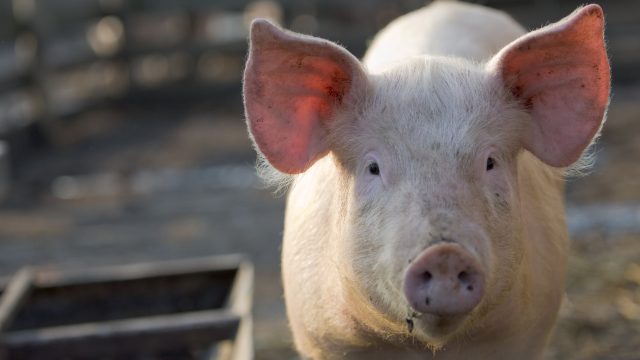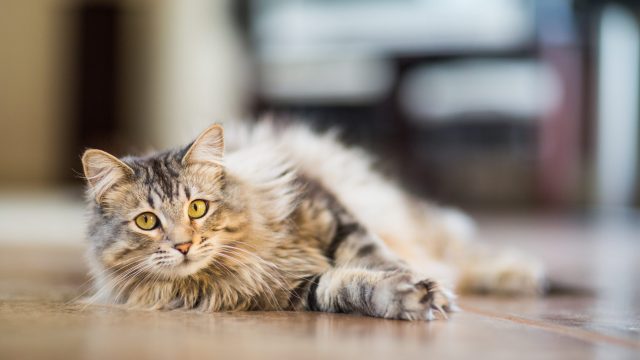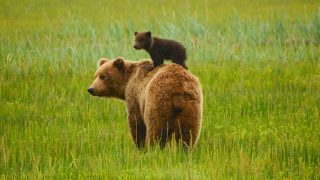
Where Are They Now? Katie Barnett
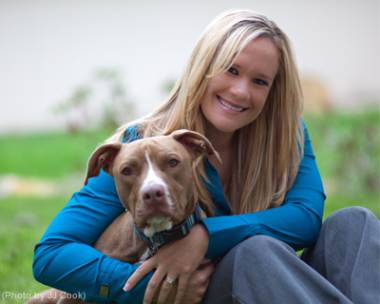 Katie Barnett is a graduate of the University of Kansas Law School, where she received a J.D. and the Walter Hiersteiner Outstanding Service Award. When Katie was in law school, one of her contributions was to found a Student Animal Legal Defense Fund (SALDF) chapter at the University of Kansas. Another was starting an animal cruelty extension of the law school’s prosecution clinic. Later, Katie was chosen to receive the Animal Legal Defense Fund’s “Advancement of Animal Law” Scholarship.
Katie Barnett is a graduate of the University of Kansas Law School, where she received a J.D. and the Walter Hiersteiner Outstanding Service Award. When Katie was in law school, one of her contributions was to found a Student Animal Legal Defense Fund (SALDF) chapter at the University of Kansas. Another was starting an animal cruelty extension of the law school’s prosecution clinic. Later, Katie was chosen to receive the Animal Legal Defense Fund’s “Advancement of Animal Law” Scholarship.
In November, 2012, Katie started her own firm: Barnett Law Office in Lawrence, Kansas, where she practices animal law by representing the Lawrence Humane Society in civil matters, as well as assisting local prosecutors on animal cruelty cases. Previously, Katie worked for Best Friends Animal Society, first as an intern, then as a legislative attorney for a pit bull initiative. Although she loved the work she did for Best Friends, tackling “dangerous dog” laws across the country, Katie realized she wanted to focus more on service to her local community of Lawrence, nestled in the northeast corner of Kansas.
After working on a case in which a child had been harmed by a dog, Katie realized she also wanted to advocate for humane safety training. She thought “let’s figure out how we can remedy this situation so children are safe and dogs receive training.” With her husband, Katie started Game Dog Guardian, a nonprofit companion animal rescue. Together, they work with law enforcement to fight animal cruelty through humane education. From humble beginnings in 2009, this organization has become the “go-to” rescue for smaller animal rescue cases in Kansas. Katie is the Co-Founder and Adoption Director. The couple teaches dog obedience classes quarterly and hosts animal events. Their work with younger students focuses on building “safe and humane” education in neighborhoods & communities. “We have to figure out how to coexist peacefully with animals” she says. “Animals need to be treated humanely.”
Katie emphasizes the importance of understanding local communities in being effective as an animal advocate. “It is critical” she says “that you understand the history of the community, the history of the law, and that you understand the politics of the area. You can’t just walk into a community and throw your weight around and say ‘you need to listen to me.’” Communities want to know what their police chief or their local animal shelter thinks about proposed legislation involving animals. “When advocating for legislative changes” Katie urges, “you need to spend time in the community. Listen. Help them with local projects. Show the community that you care about the people and animals in the community. That’s the best way to effect change.”
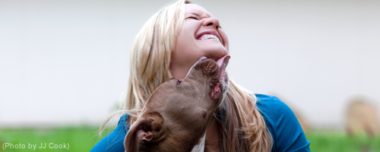
Community work is important for all beginning lawyers as well. “Get involved and volunteer,” Katie says. “Animal welfare is one of the easiest places to volunteer your time and to get experience because your local shelter or rescue will need help. As a law student, you can be a liaison between animals and the local community.”
“Katie is doing incredibly important things for animal law,” says Pamela Hart, Director of ALDF’s Animal Law Program. “From initiating humane education in elementary schools to starting a SALDF chapter in law school, to returning to fight abuse in secondary institutions, ALDF is proud to see her take these brave steps for animals.”
Katie lives with her husband Anthony Barnett and her rescue dog Katrina—named after the Hurricane she was rescued from—and Liam and Leonidas, Pet Partner registered therapy dogs. Leonidas is a victim of cruelty (and inspired the work Katie does for Game Dog Guardian), but Katie says “he has the fastest-wagging tail West of the Mississippi.”
How We Work
Recent News
-
Court Rules Texas Food Label Censorship Law is Unconstitutional
The law imposed unclear and vague standards on plant-based meat producers that violate the First AmendmentJanuary 29, 2026 Press Release -
Defend the Big Cat Public Safety Act
Urge your federal representative to oppose H.R. 7159, which aims to undo protections established by the Big Cat Public Safety Act, including by creating exemptions allowing direct contact with big cats, such as cruel cub petting. -
State Animal Protection Laws Ranked: Oregon is #1, North Dakota #50
20th edition of ALDF state and territory ranking report highlights major advancements & trends in animal protection across the U.S.January 27, 2026 News

